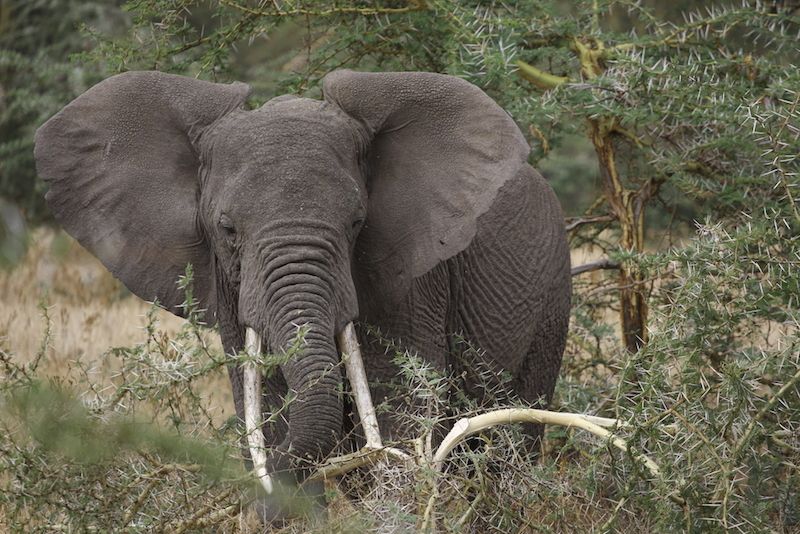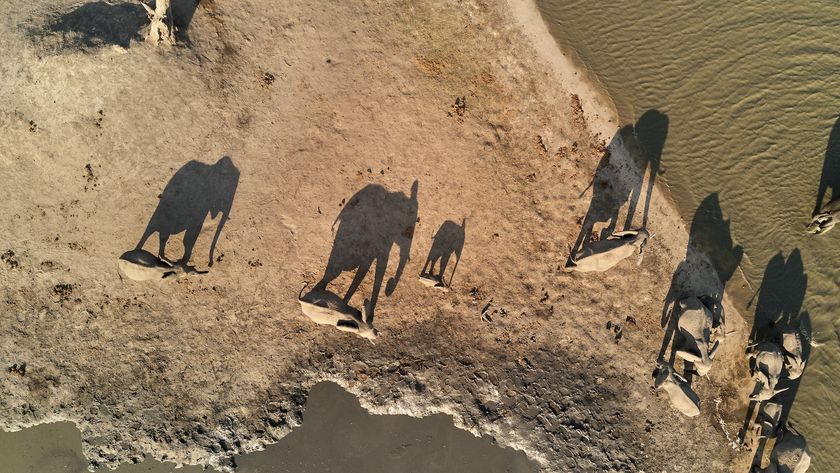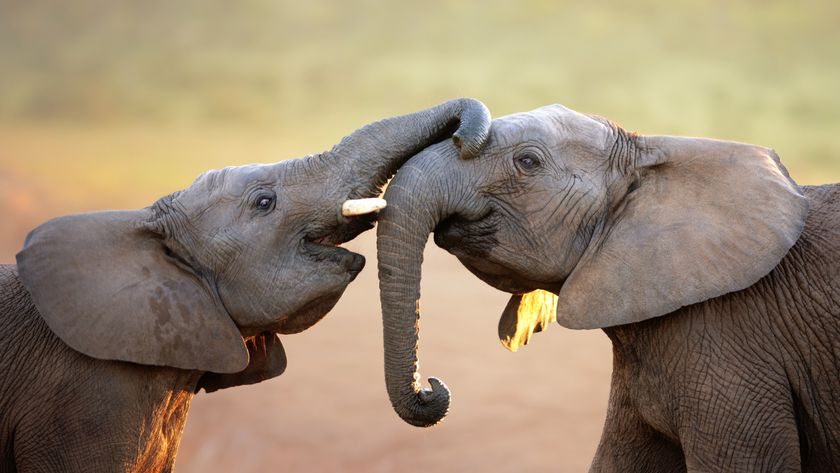Elephant Genes Hold Cancer-Fighting Secret

Cancer is less prevalent in elephants than in humans, in part because the giant animals have more copies of a gene that suppresses tumor growth, a new study finds.
Understanding how this gene evolved and works in elephants may help researchers develop ways to treat human cancer patients, the researchers said.
In the study, the researchers focused on the so-called "guardian of the genome" — a gene called TP53. Normally, this gene encodes a protein that suppresses tumors. In the majority of human cancers, this gene is mutated, leading to increased cell reproduction (a hallmark of cancer) and genomic instability (mutations in the genome), the researchers said. [10 Do's and Don'ts to Reduce Your Risk of Cancer]
Humans inherit one copy of TP53 from each parent, and both are needed to prevent cancer development. People who inherit one copy that doesn't work may develop a condition called Li-Fraumeni syndrome, which gives them a greater than 90 percent risk of getting cancer during their lifetime, according to the study, published online today (Oct. 8) in the journal JAMA.
In contrast, elephants get at least 20 copies of TP53 from each parent, which may explain their low rate of cancer, the researchers said.
"Compared with other mammalian species, elephants appeared to have a lower-than-expected rate of cancer, potentially related to multiple copies of TP53," they said in the study. "These findings, if replicated, could represent an evolutionary-based approach for understanding mechanisms related to cancer suppression."
The researchers began their experiments by comparing cancer rates in 36 mammals, including elephants. By looking at 14 years of data collected by the San Diego Zoo during necropsies (the animal version of an autopsy), they found that animals' cancer risk did not increase with body size or with long life spans.
Sign up for the Live Science daily newsletter now
Get the world’s most fascinating discoveries delivered straight to your inbox.
This finding was surprising, because having a greater number of body cells, and a higher number of cell divisions, usually increases the chance of accumulating the mutations that can lead to cancer, according to the researchers, who were led by Lisa Abegglen, an oncology researcher at the University of Utah School of Medicine in Salt Lake City.
Despite elephants' enormous size and longevity — they can weigh about 10,500 lbs. (4,800 kilograms) and live for up to 65 years — only about 4.8 percent of the animals die of cancer, the researchers found. In comparison, 11 to 25 percent of humans die of cancer, they said.
Next, the researchers collected blood samples from two African and six Asian elephants, 10 people with Li-Fraumeni syndrome and 11 people withoutLi-Fraumeni syndrome, and exposed the blood cells to radiation. If a healthy cell is exposed to radiation, TP53 triggers a cascade of events that kill the cell — this protective mechanism prevents a cell with a high chance of becoming cancerous from persisting in the body. In other words, cell death in this case is a good thing.
As expected, the people with Li-Fraumeni syndrome had the least cell death — just 2.7 percent of their blood cells died. In the healthy humans, 7.2 percent of the cells died, but in the elephants, 14.6 percent of the cells died, the researchers found.
The elephant's low rate of cancer likely evolved over time because it gave the animal an advantage in longevity: Elephants with more copies of TP53 likely lived longer and passed on their genetic code to more offspring than elephants with fewer copies, according to the study.
"The enormous mass, extended life span and reproductive advantage of older elephants would have selected for an efficient and fail-safe method for cancer suppression," the researchers wrote in the study.
The "innovative" study helps scientists understand why humans are so "ill-adapted to cancer," two researchers, who were not involved in the study, wrote in an editorial in JAMA that is published along with the new study.
However, while TP53 helps prevent cancer, it may not be enough to prevent the wide range of cancers seen in modern humans, such as cancers caused by smoking, diet choices or sun-soaking habits, Mel Greaves and Luca Ermini, both of the Institute of Cancer Research in London, wrote in their editorial.
"These behaviors are relatively recently acquired by humans, over a few hundred years, and the risks they impart far exceed prior and otherwise effective cancer suppressor mechanisms that were inherited from primate ancestors," they wrote in the editorial.
Follow Laura Geggel on Twitter @LauraGeggel. Follow Live Science @livescience, Facebook & Google+. Original article on Live Science.

Laura is the archaeology and Life's Little Mysteries editor at Live Science. She also reports on general science, including paleontology. Her work has appeared in The New York Times, Scholastic, Popular Science and Spectrum, a site on autism research. She has won multiple awards from the Society of Professional Journalists and the Washington Newspaper Publishers Association for her reporting at a weekly newspaper near Seattle. Laura holds a bachelor's degree in English literature and psychology from Washington University in St. Louis and a master's degree in science writing from NYU.











